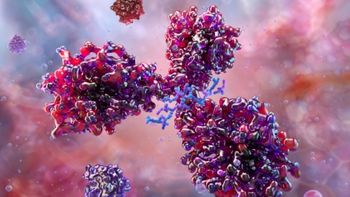
- BioPharm International-10-15-2020
- Volume 2020 eBook
- Issue 3
Do Pharmacopoeias Inadvertently Facilitate Data Integrity Violations?
Analysts should understand how a monograph, together with the associated general notices and general chapters, relate to their responsibilities under good manufacturing practices.
The title of this article is deliberatively provocative. Pharmacopoeias contain the legal standards for the quality of medicines with monographs for active ingredients, excipients, and finished products. Analysts should understand how a monograph, together with the associated general notices and general chapters, relates to their responsibilities under good manufacturing practices for ensuring data integrity. However, many pharmacopeial tests therein involve classical chemical analysis (e.g., color, appearance, titration) and rely on an analyst’s observation with little, if any, documented evidence for review. Hence, do pharmacopoeias inadvertently facilitate data integrity violations?
In this article the authors look at the following topics:
- Purpose and role of the pharmacopeias
- Interaction of the monographs, general notices, and general chapters
- Examination of a monograph and the interpretation into an analytical procedure to see how the testing structure in a pharmacopeia can inadvertently facilitate data integrity violations
- Practical application of the requirements that data are attributable, legible, contemporaneous, original, and accurate (ALCOA) as well as complete, consistent, enduring, and available (ALCOA+) to pharmacopeial analysis to ensure data integrity.
About the authors
C. Burgess is managing director of Burgess Analytical Consultancy Limited and is the writer of the Statistical Solutions column in Pharmaceutical Technology. R.D. McDowall is director of R D McDowall Limited and is the author of Questions of Quality and Focus on Quality columns in LC-GC Europe and Spectroscopy, respectively.
Article Details
BioPharm International
eBook: Regulatory Sourcebook, October 2020
October 2020
Pages: 18–27
Citation
When referring to this article, please cite it as C. Burgess and R.D. McDowall, “Do Pharmacopoeias Inadvertently Facilitate Data Integrity Violations?" BioPharm International Regulatory Sourcebook (October 2020).
Articles in this issue
over 5 years ago
Bio/Pharma Industry Works Overtime to Find COVID-19 Therapiesover 5 years ago
GMPs Guide COVID-19 Vaccine Manufacturingover 5 years ago
Viral Vector API Characterization of Product-Related Impuritiesover 5 years ago
Tackling Cybersecurity Challenges in Legacy Systemsover 5 years ago
Due Diligence Assessment of CMC Activitiesover 5 years ago
Strong Quality Culture: A How-To for Busy Managersover 5 years ago
Resources, Guidelines, and Guidance Documentsover 5 years ago
Regulatory and Standard Setting OrganizationsNewsletter
Stay at the forefront of biopharmaceutical innovation—subscribe to BioPharm International for expert insights on drug development, manufacturing, compliance, and more.




